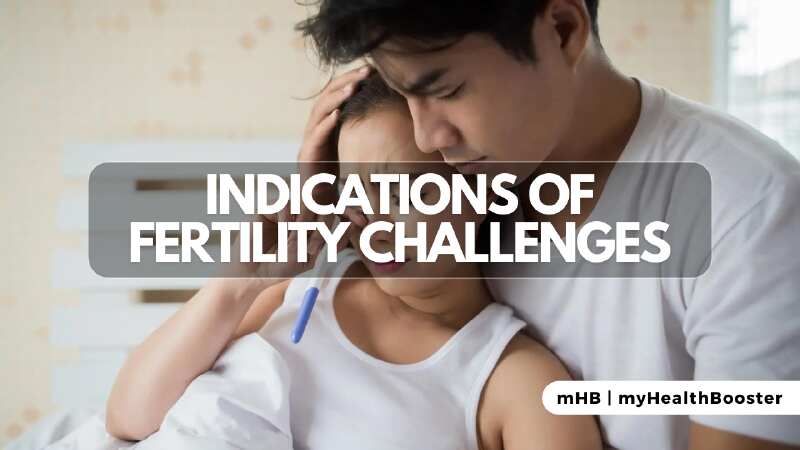How Prevalent is Infertility?
While some individuals effortlessly embark on the journey to parenthood, others encounter hurdles. Infertility is a relatively common issue, affecting approximately 12% to 15% of people, with 1 in 8 heterosexual couples experiencing its impact. Identifying signs of infertility is crucial, prompting a visit to the doctor for further evaluation.
Attempting to Conceive for 12 Months Without Success
Infertility is diagnosed when conception proves elusive after 12 months of regular unprotected intercourse with a consistent partner. For women over 35, this timeframe is shortened to 6 months. While quick success in conceiving is not universal, couples typically take around 4 months to achieve pregnancy. If you fall within this timeframe and everything else appears normal, consulting a doctor may not be immediately necessary.
Noteworthy Menstrual Irregularities Excessive Menstrual Flow
Menstrual periods exceeding 8 days, necessitating tampon or pad changes every hour, or featuring large blood clots, warrant attention. While some women overlook heavy periods, they could signify underlying conditions, such as endometriosis, linked to infertility.
Irregular Menstrual Cycles
Deviating from the standard 28-day cycle, irregular periods involve cycles longer than 38 days or shorter than 24 days. Consistent unpredictability could signal disorders like polycystic ovarian syndrome, ovulation problems, or hormonal imbalances, all of which may impact fertility.
Challenges with Ejaculation
Male fertility concerns may manifest through ejaculation problems, influenced by emotional, psychological, or physiological factors. Difficulties in sperm reaching the egg may result from conditions like testicle injuries, surgery, medication side effects, or diseases such as diabetes. Seeking medical advice is advisable for addressing ejaculation issues.
Discomfort During Intercourse
Pain during sexual intercourse may indicate underlying issues like infections or endometriosis, which can contribute to infertility. While some initial discomfort may be perceived as normal, persistent, deep pain warrants consultation with a healthcare professional.
Erectile Dysfunction
Erectile dysfunction (ED) presents difficulties in achieving or maintaining an erection sufficient for sexual activity. Often stemming from health conditions like high blood pressure, diabetes, stress, or hormonal imbalances, ED can impact fertility, particularly if associated with low testosterone levels.
Impact of Age on Female Fertility
Advancing age correlates with reduced ovulation and diminished egg production, elevating the risk of infertility. As menopause approaches, the quantity of eggs decreases, influencing fertility prospects.
Testicular Swelling or Pain
Testicular swelling or pain may signify physical issues like torsion, infection, injury, or cancer, all potential contributors to infertility. These conditions can also affect testosterone production, further impacting fertility.
Recurrent Pregnancy Loss
Experiencing two or more miscarriages is categorized as recurrent pregnancy loss. While miscarriages can result from various causes, most individuals with recurrent pregnancy loss do not necessarily face infertility issues. Seeking medical guidance can identify underlying causes, facilitating a path toward a healthy pregnancy.
When to Consult a Doctor
A preconception health check is advisable before embarking on the journey to parenthood. If attempts to conceive prove unsuccessful after 12 months of regular, unprotected intercourse, seeking guidance from a healthcare professional is recommended. Regular check-ups can ensure overall health, identify potential issues, and pave the way for informed family planning.
